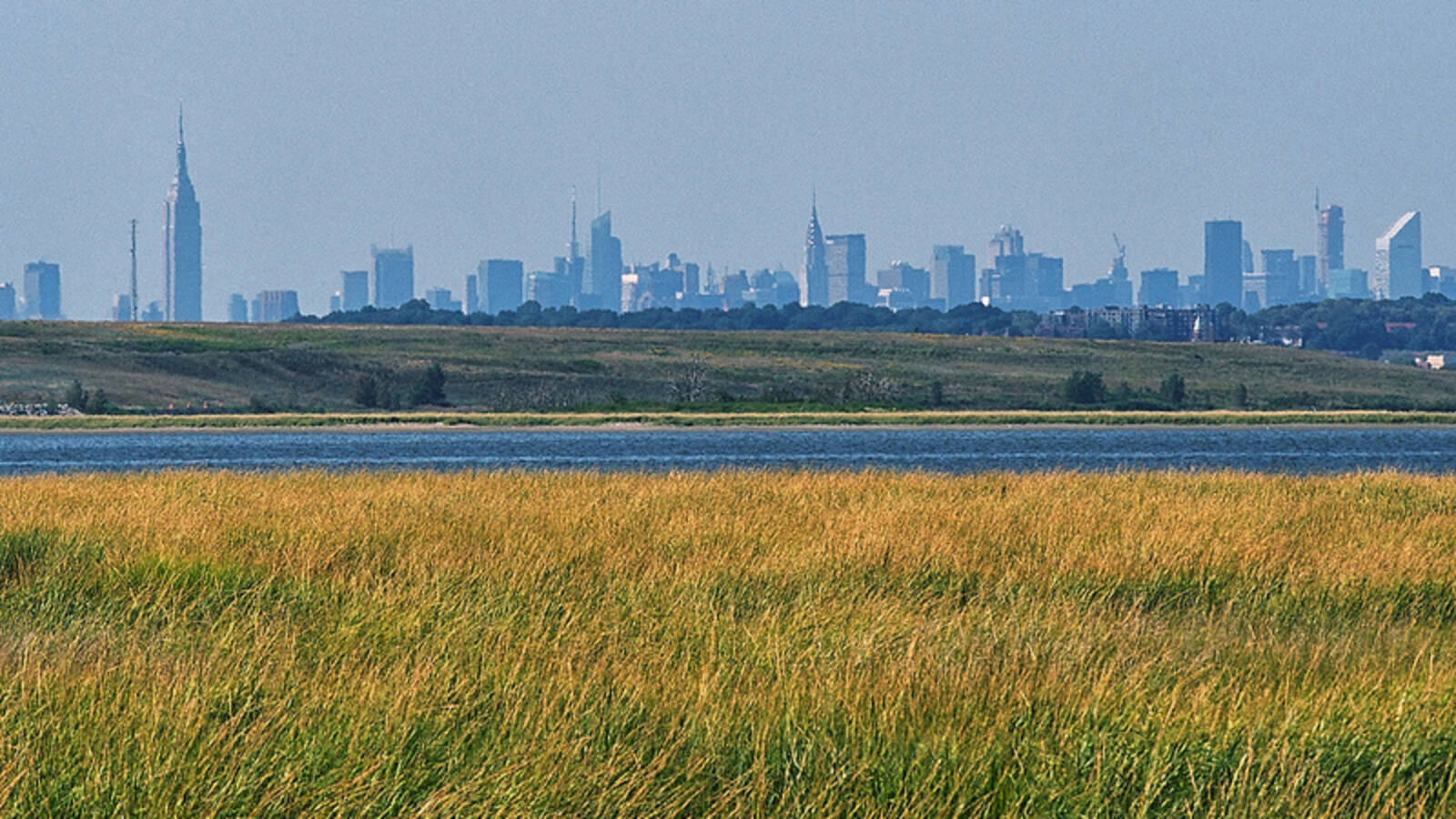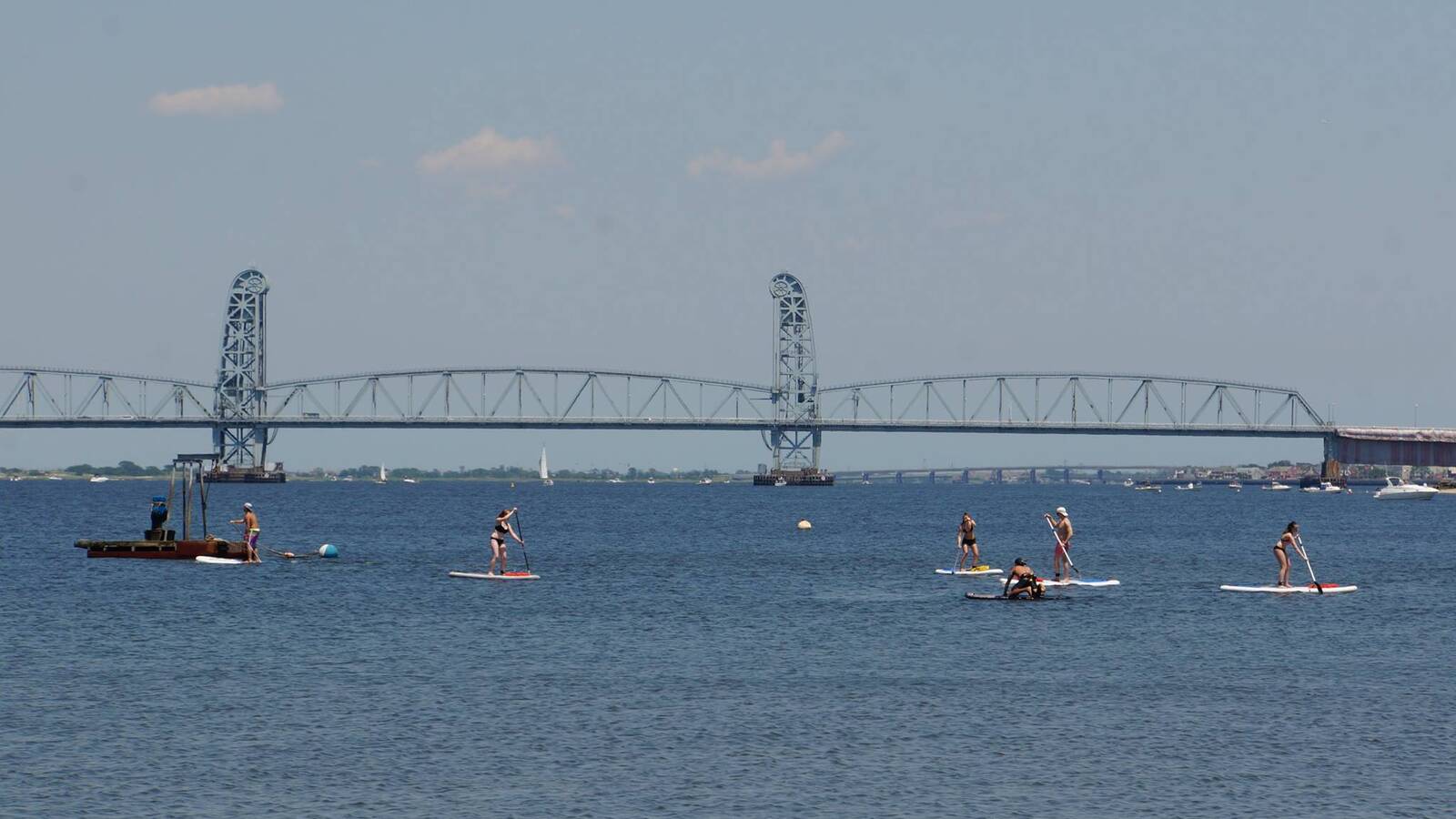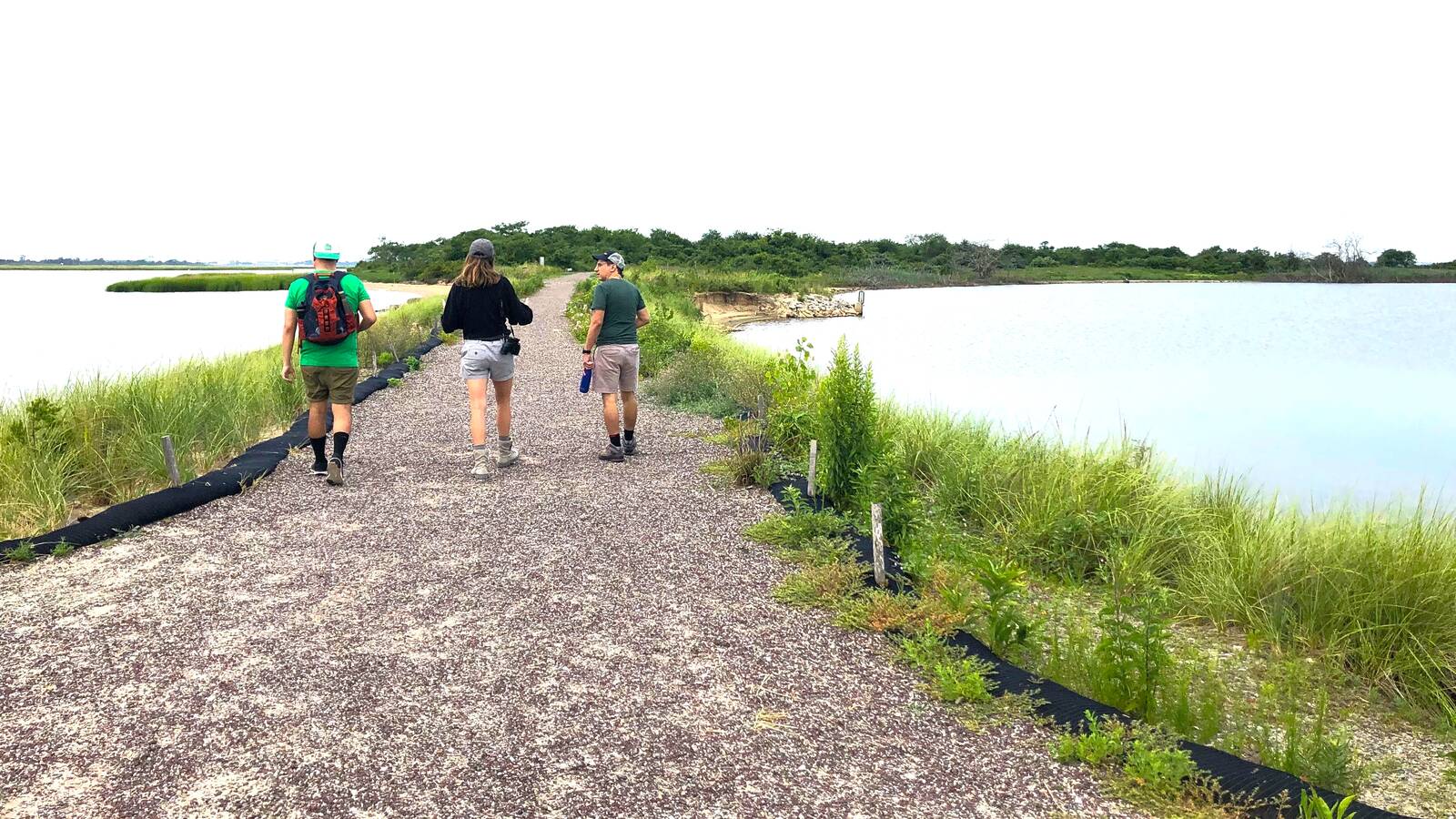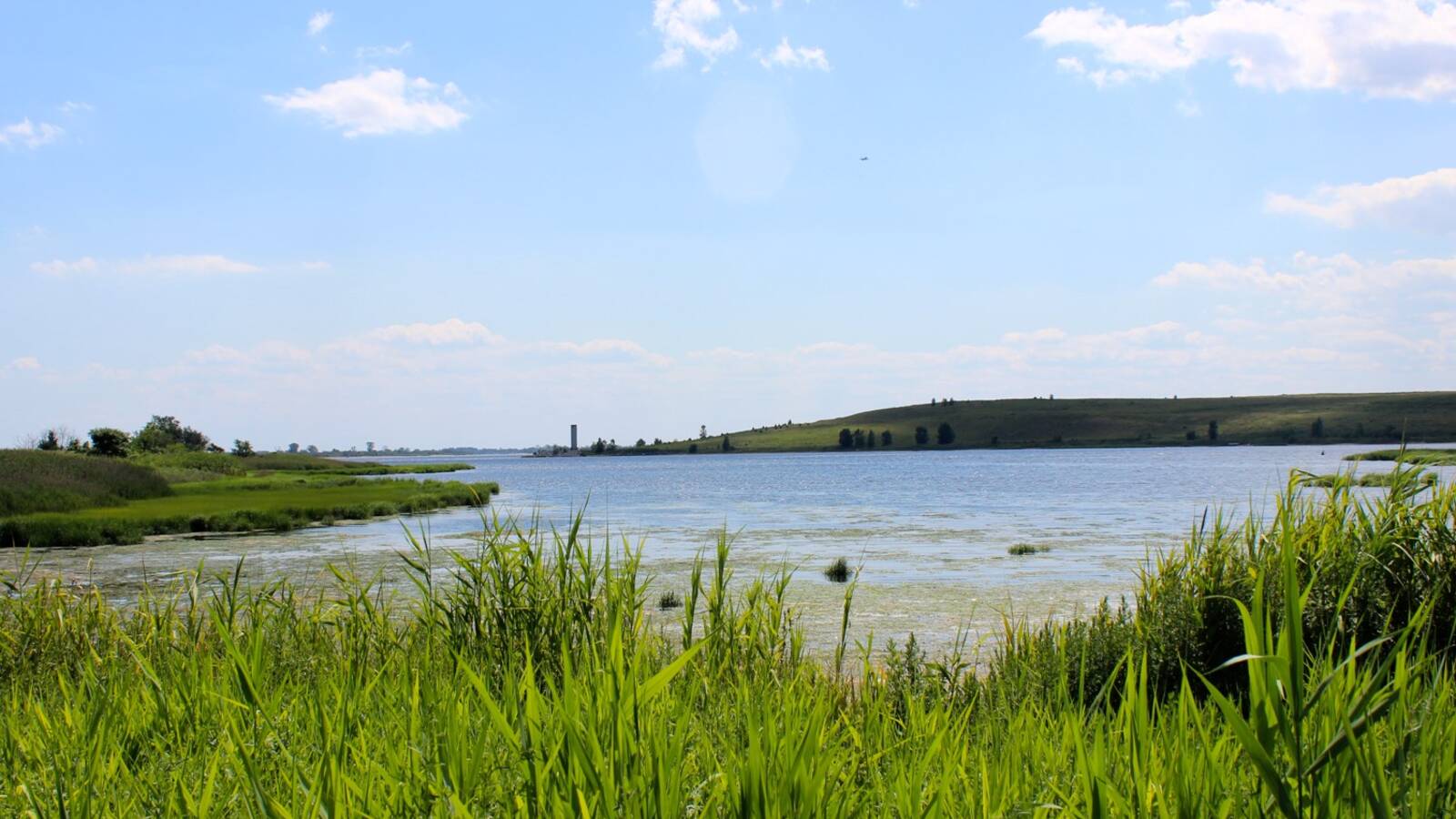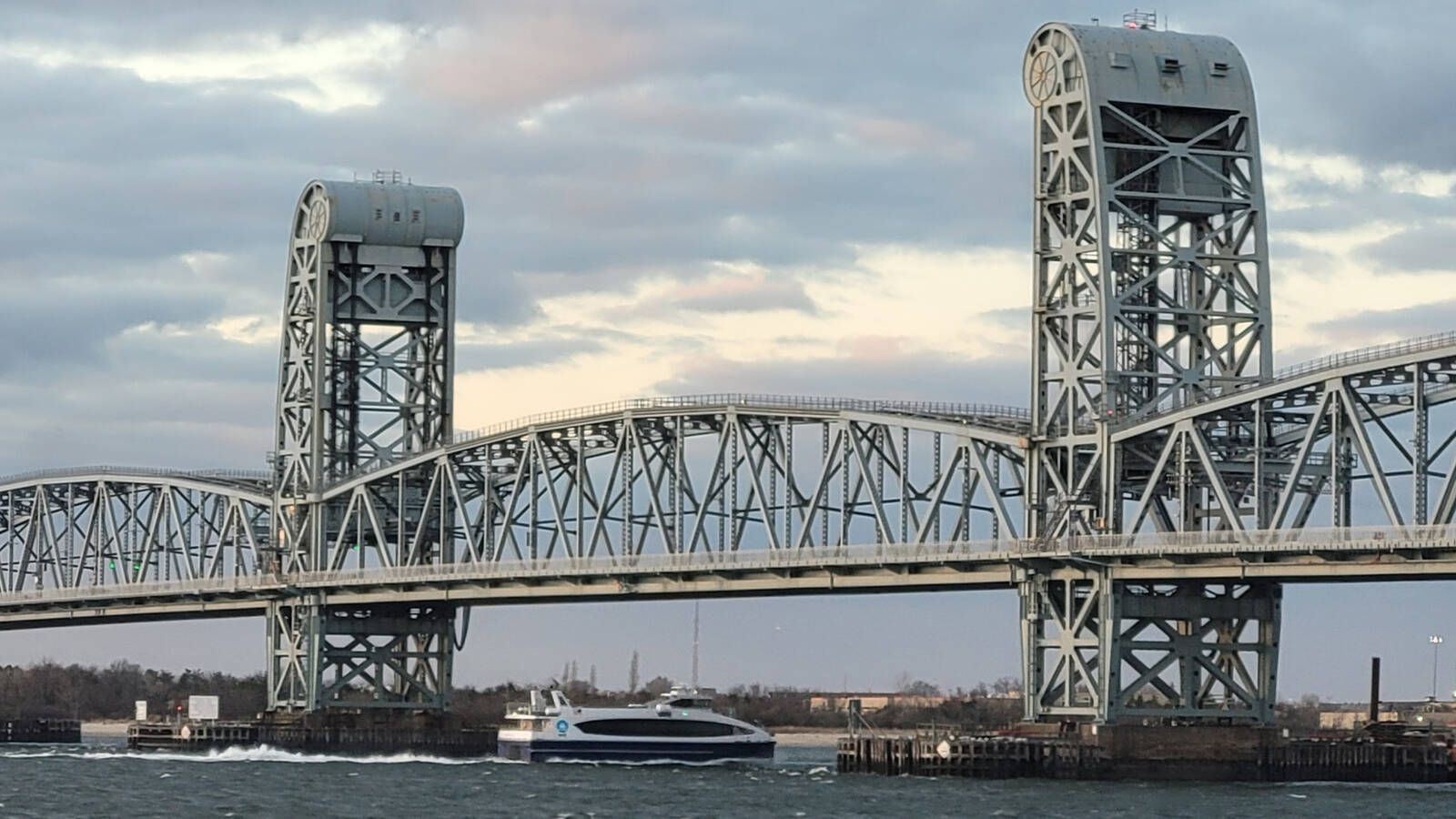The future of the New York-New Jersey Harbor and Gateway National Recreation Area rests in the hands of the Army Corps of Engineers. Today, NPCA is working with bipartisan Congressional leaders and local communities to shape the outcome to benefit all of us.
After the devastation from Superstorm Sandy, Congress directed the Army Corps to put together a plan to protect the region from future flooding, which is becoming more frequent and intense due to climate change. In fact, coastal communities in New York and New Jersey are particularly vulnerable to displacement and property damage from a myriad of flooding threats. The Corps responded to the crisis by proposing 20-foot high in-water flood gates and 84 miles of concrete and steel walls to block storm surge. These structures would only address one kind of flooding, leaving residents and national parks susceptible to heavy rainfall, rising seas and more.
The Corps’ flood gates undercut decades worth of progress to improve water quality and restore public access to the waterfront. And it’s the most expensive Army Corps project ever, costing taxpayers $52.6 billion! It’s time for the Army Corps to adhere to federal law and offer solutions that address multiple kinds of flooding, so that our communities and the national parks of New York-New Jersey Harbor are better protected now and in years to come.

Building Resiliency Against Disasters
Hurricanes and other disasters are harming our parks. NPCA is advocating for more resources to help staff prepare before emergencies strike.
See more ›Together, we are making a difference. Over the last five years, NPCA worked closely with bipartisan members of Congress to advance policies that direct the Corps to address coastal storms and other flooding threats, including rainfall and more frequent high tides. We fought for cost-effective projects to be built immediately, recognizing that New York-New Jersey residents and NYC national parks need flood protection now and cannot wait for “billions” to become available.
Our advocacy has paved the way for ecosystem restoration at Gateway National Recreation Area’s Great Kills Park in Staten Island. This win-win project will stabilize a degrading shoreline with native, salt-tolerant plants, enhance wildlife habitat, and create new tidal canals that redirect flood waters away from nearby residents and a local wastewater treatment facility.
But our work is not done. The Army Corps is still targeting Jamaica Bay, the heart of Gateway, for a massive flood gate and miles of concrete seawalls. Gateway is a top five most visited national park. Nearly 9 million people frequent the urban park annually to escape city life and explore its trails, views, beaches, wetlands and wildlife. Jamaica Bay is home to salt marshes, ponds and 330 bird species.
Jamaica Bay salt marshes, with the NYC skyline in the background
© C VerwaalVisitors stand up paddle boarding in Jamaica Bay under the Marine Parkway Bridge, just feet away from where the Army Corps’ is proposing a flood gate that would wall in recreational activities like these.
© OutdoorFest NYCNPCA’s Northeast Regional staff hike the West Pond Trail at the Jamaica Bay Wildlife Refuge
Jamaica Bay Wildlife Refuge, looking north at Shirley Chisholm State Park in Gateway National Recreation Area
Marine Parkway Bridge
© Lauren Cosgrove/NPCAA flood gate across the Jamaica Bay inlet is an outdated, one-size-fits all approach that restricts water flow into the estuary and threats park resources. If closed, areas behind the gates would experience an overflow of already contaminated waters, risking public health and safety. Areas in front of closed gates would become sacrifice zones, putting residents and irreplaceable park resources in harm’s way.
That’s why NPCA, along with 40+ organizations are calling for a plan that offers multiple layers of flood protection. By advancing ecosystem restoration and withdrawing egregious flood gates like the one proposed across Jamaica Bay, we can enhance our coastlines, bolster local economies and improve the quality of life for millions of people that live and recreate here.
The Army Corps’ $52 billion dollar taxpayer-funded proposal jeopardizes the future of New York Harbor’s national parks and needlessly subjects vulnerable communities to common and frequent types of floods. The Corps must hit the pause button and design a better plan that protects residents and parklands from all kinds of climate-induced flooding, as federal law requires. The future of New York’s Harbor rests in the hands of the Army Crops. NPCA calls on Congress, the states of New York and New Jersey and the City of New York to hold the Corps accountable.
Get Action Alerts
Want national parks in your inbox? Sign up for NPCA email updates to receive news, features, and opportunities to make a difference! You can unsubscribe at any time.
